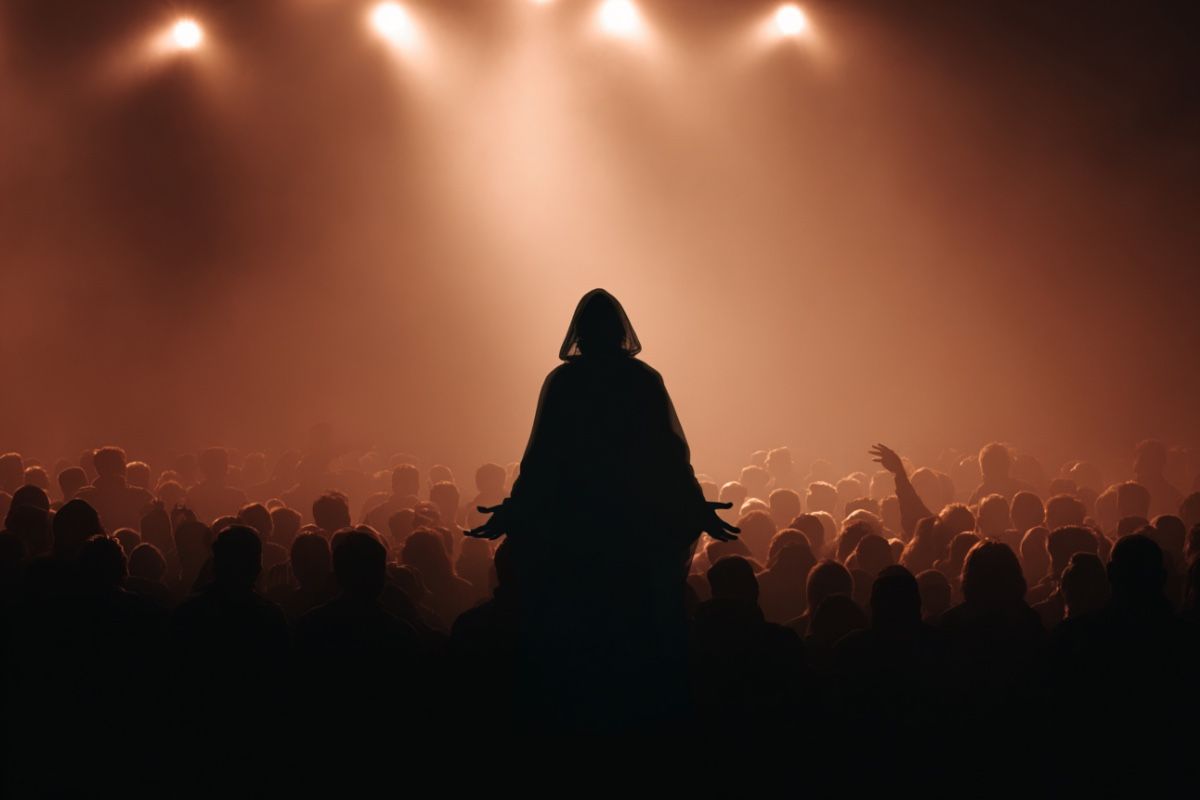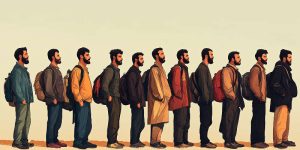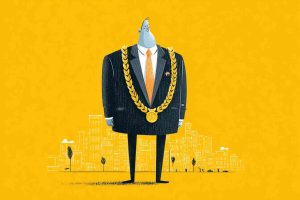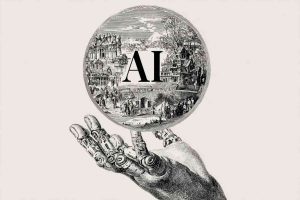The messiah complex: the rise of false saviors and the decline of individual freedom

A timeless delusion reborn in modern times
Throughout history, individuals have claimed to possess a unique moral authority to save humanity from itself. Religious leaders, prophets, and revolutionaries alike have often portrayed themselves as the solution to mankind’s problems. This phenomenon, commonly called the Messiah complex, is no longer confined to religious figures or political revolutionaries. Today, it manifests across society, from unelected bureaucrats and corporate leaders to influencers and everyday people who believe they know how others should live.
The messiah complex reflects a dangerous psychological tendency: the fusion of moral arrogance with control over others’ lives. It is not driven by love or empathy, but by a need to assert power under the guise of virtue. According to S. Kets de Vries, the Messiah complex is deeply linked to narcissistic traits, delusions of grandeur, and unresolved personal insecurity (The Messiah Complex: Psychopathology of Self-Appointed Saviors, S. Kets de Vries).
Today’s self-proclaimed saviors are not always mentally ill, but they are often deluded by their own inflated sense of importance.
Politicians who pretend to save humanity
In politics, the messiah complex has become a tool for gaining power. Many modern politicians no longer view their role as representing the people. Instead, they see themselves as moral guides, tasked with reshaping society according to their personal beliefs.
European Union officials regularly frame their unpopular policies as morally necessary for the survival of the planet, democracy, or human rights, dismissing opposition as ignorance or hate (The Arrogance of Power in the European Union, C. Hitchens). Examples include climate policies that crush the middle class, speech regulations disguised as “protection, ” and economic redistribution masquerading as “solidarity.”
Climate czars like Frans Timmermans and Wopke Hoekstra frame themselves as heroes saving Europe from climate collapse, while flying around the world in private jets and living far above the standard they impose on ordinary citizens (The Climate Hypocrisy of Elites, R. Jenkins). Their double standards expose the self-serving nature of their supposed righteousness.
Similar trends exist in the US, where both left- and right-wing politicians claim moral superiority while vilifying their opponents as threats to democracy, security, or freedom. Political discourse becomes a battlefield of false prophets rather than a forum of equals.
The influencer-savior: shallow virtue in digital form
The rise of social media has created a new class of mini-messiahs: influencers, activists, and self-appointed life coaches. These individuals, lacking expertise but rich in confidence, tell millions how to eat, think, vote, and feel.
Fitness coaches without medical training tell people what to eat. Activists declare themselves experts on social justice after reading a handful of articles. Mental health influencers prescribe lifestyle changes without psychological credentials. These people have no qualifications to guide others, yet they present themselves as beacons of wisdom.
Worse, they often resort to public shaming, cancelling those who disagree (So You’ve Been Publicly Shamed, J. Ronson). Their influence does not stem from reason but from emotional manipulation, peer pressure, and algorithmic amplification.
The digital messiah complex turns personal opinions into moral commandments. Any deviation from their lifestyle, whether in diet, political alignment, environmental habits, or parenting, is treated as a moral failing, rather than a difference of opinion.
The everyday messiah: unsolicited moral policing
Perhaps most concerning is the rise of messiah-like behavior in ordinary social interactions. People increasingly feel entitled to tell friends, family, coworkers, and strangers how to live. These modern-day moral police do not approach others with humility or curiosity, but with judgment and unsolicited advice.
Whether it’s dietary choices, parenting styles, religious beliefs, political opinions, or even hobbies, no area of life is safe from their uninvited criticism. This is no longer about helping others but about asserting one’s perceived superiority.
These small-scale messiahs often ignore context. They rarely ask themselves whether they fully understand another person’s circumstances or struggles. Instead, they issue quick judgments from a place of ignorance cloaked in virtue.
Psychological roots: insecurity dressed as virtue
The messiah complex often masks deep personal insecurity. People struggling with their own problems may find comfort in controlling the lives of others. By focusing on “saving” someone else, they can avoid confronting their own shortcomings (The Narcissism Epidemic, J. Twenge & W. Campbell).
Messiah figures often display narcissistic personality traits: inflated self-importance, lack of empathy, and an excessive need for admiration. Their “good deeds” are rarely acts of selfless love. Instead, they seek validation, social status, and control.
They create simplistic narratives in which they are the hero, and everyone else is either a victim needing rescue or a villain opposing their mission. Complexity, nuance, and ambiguity are erased because they threaten the hero’s fragile identity.
The social dangers of false saviors
A society infected by the messiah complex becomes intolerant and fragile. Dialogue disappears because too many people believe they already possess the ultimate truth. Instead of conversation, there is only moral condemnation.
In the political sphere, this leads to polarization. Governments and parties frame disagreements as existential threats rather than legitimate differences (Why We’re Polarized, E. Klein). Opposition is no longer respected but demonized.
In cultural life, the messiah complex fuels censorship and social control. Under the pretense of protecting society from harm, these false saviors justify restrictions on free speech, privacy, and lifestyle choices (On Liberty, J.S. Mill). People are no longer free to make their own mistakes; they must conform to the messiah’s moral blueprint.
In social interactions, the messiah complex undermines empathy and community. Instead of supporting others in their personal journeys, people impose their own values, creating resentment and division.
False saviors versus true leadership
There is a profound difference between leadership and the messiah complex. True leaders lead by example and persuasion, not by coercion. They recognize their own fallibility and the complexity of human life.
- True leaders empower others to make their own choices. False messiahs impose their choices on others.
- True leaders listen to different perspectives. False messiahs silence dissent.
- True leaders focus on serving society. False messiahs focus on validating themselves.
As Jim Collins writes, the best leaders practice humility and put the mission above personal ego (Good to Great, J. Collins). They recognize that their role is to guide, not to command.
Restoring freedom through humility
The antidote to the messiah complex is humility. People must accept that:
- No single person or ideology possesses absolute truth.
- Every individual has the right to live according to their own values, even if those values differ from mainstream narratives.
- Life is complex, and different people may reach happiness and fulfillment through different paths.
John Stuart Mill argued that true liberty lies not in the absence of mistakes, but in the freedom to make them (On Liberty, J.S. Mill). Societies flourish when individuals are allowed to explore, fail, and learn on their own terms.
A warning for the future
The modern world, with its global crises, technological power, and interconnected populations, is fertile ground for the messiah complex. As problems become more complex, the temptation to appoint false saviors will grow.
History warns us where this path leads. Every dictatorship began with someone claiming to save the people. Every act of censorship began with someone claiming to protect society from dangerous ideas.
Unless we reject the messiah complex, we risk replacing dialogue with dictatorship, and freedom with paternalism.
References
- The Messiah Complex: Psychopathology of Self-Appointed Saviors, S. Kets de Vries
- The Arrogance of Power in the European Union, C. Hitchens
- The Climate Hypocrisy of Elites, R. Jenkins
- So You’ve Been Publicly Shamed, J. Ronson
- The Narcissism Epidemic, J. Twenge & W. Campbell
- Why We’re Polarized, E. Klein
- Good to Great, J. Collins
- On Liberty, J.S. Mill


















